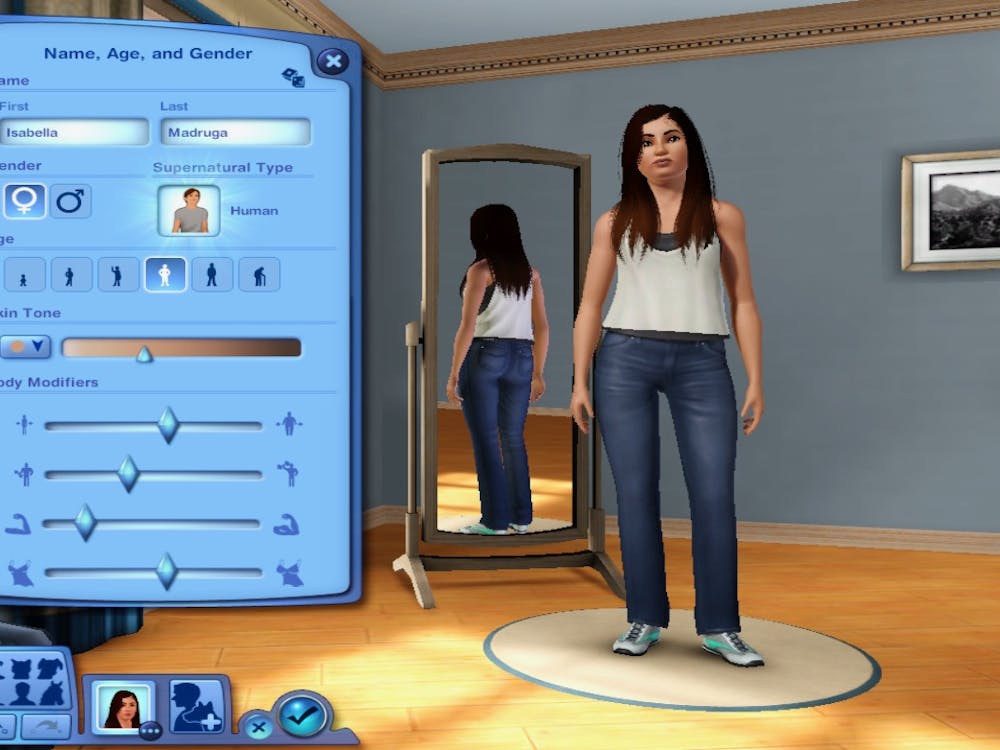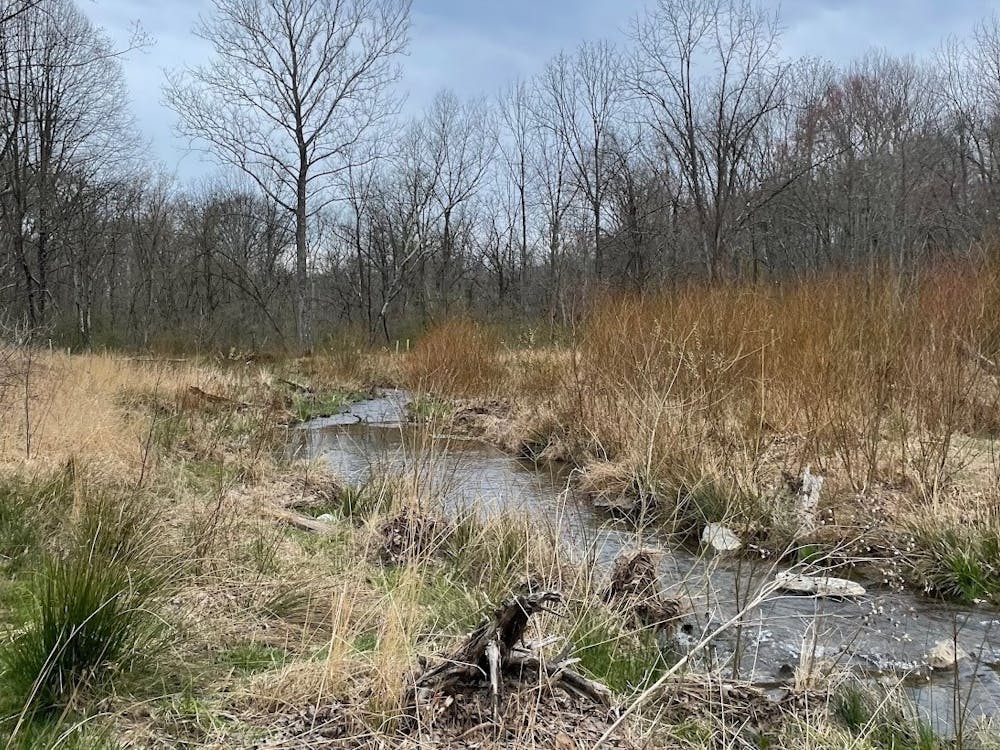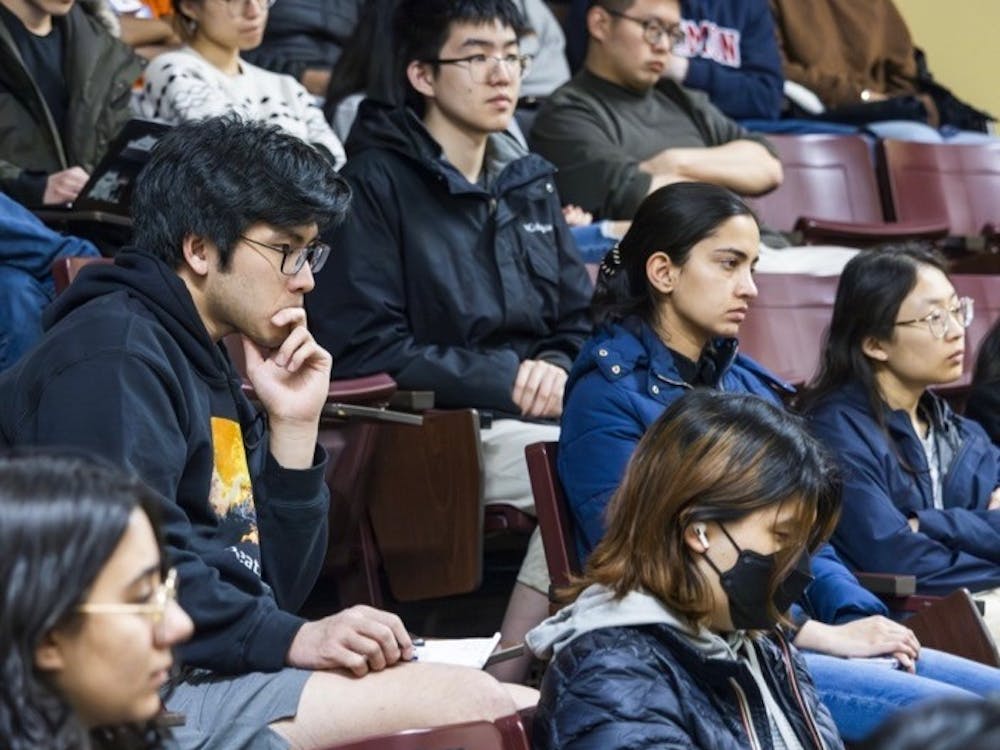It is recommended that the average person drink eight 8-ounce glasses of water a day to help relieve fatigue, aid digestion and alleviate pain. The best way to stay hydrated is through the use of readily available, clean and safe public drinking water, as we are privileged to have here on the Homewood Campus of Johns Hopkins University.
Tap water is better than bottled water in terms of sustainability, affordability and safety. Tap water is generally safer than bottled water. The Environmental Protection Agency (EPA) requires daily, published tests on all sources of tap water across the country, sometimes testing as many as 100 times a month. Meanwhile, the Food and Drug Administration (FDA) only requires weekly, unpublished testing for bottled water. Additionally, more than half of all bottled water comes from the tap anyway.
Bottled water is also several times more expensive than tap water. Tap water costs an average of $2 per every thousand gallon, while most bottled waters retail for more than 600 times that amount.
The production and transport of bottled water is also incredibly harmful to the environment. In the United States alone, 17 million barrels of oil are used solely in the production of plastic water bottles. The bottled water industry produces polluting plastic waste, releases carbon dioxide into the atmosphere and uses enormous amounts of energy in transportation and production. Choosing to use a reusable bottle is one small and beneficial step to take to help the environment, drink safely and save money.
Tap water in Baltimore is purified and is safe to drink. Overseen by the Baltimore City Department of Public Works, taps supply 1.8 million homes with drinking water. The source of Baltimore water is surface water, rainfall and snowmelt that feed into the Liberty, Loch Raven and Prettyboy reservoirs. Abel Wolman, a Hopkins professor and pioneer of public water supplies, is the reason why our watersheds are clean and pure. His visionary ideas inspired the City of Baltimore to purchase the areas surrounding our reservoirs, allowing the land to remain natural and forested.
If the taste of local tap water worries some students, a solution is to purchase a water filter that simply attaches to your tap or to purchase any of the readily available water bottles with built-in filters. This additional process of purification allows your tap water to be even more refreshing while also remaining environmentally friendly and economical.
The Hopkins Chapter of Take Back the Tap (TBTT) is a student-run environmental awareness group focused on eliminating the sale and use of plastic water bottles on campus. The group was founded in 2012 and has taken significant steps towards the goal of banning the bottle on campus.
We have worked to ensure that the campus water infrastructure is conducive to the consumption of tap water and the use of reusable water bottles by performing inventories of all of the water fountains on campus, regularly auditing the counting fountains and ensuring the retrofitting and installation of hundreds of bottle filling stations.
TBTT has conducted surveys of the Hopkins student body regarding the habits of water consumption. From 2012 to 2015, we observed that the number of Hopkins students who regularly buy bottled water has dropped from 28 to 22 percent.
As a group, we hope to help make the Hopkins campus completely independent of bottled water. Our group has also hosted movie screenings, lecture series, Breezeway giveaways and other events to help raise awareness about the difference that students can make by choosing to drink tap water. Each year, we design a new sticker for reusable water bottles to help encourage students to utilize and celebrate their sustainable decision to avoid bottled water.
Each year, every member of the incoming Hopkins class receives a reusable water bottle. This year, it is a clear bottle with a green top that you will see freshmen using all over campus. TBTT, the Office of Sustainability, the Departments of Housing, Residential Life, Orientation and First Year Experience all worked together to support the distribution of these bottles. We ask you to take back the tap this semester, to help to make a difference in our environment both locally and globally.
















Please note All comments are eligible for publication in The News-Letter.